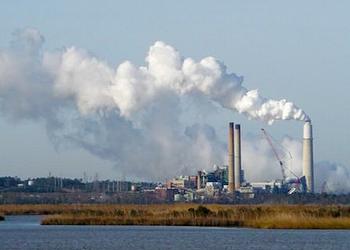
WASHINGTON, DC, February 21, 2018 (ENS) – In a letter to the U.S. Environmental Protection Agency, EPA, 236 mayors from 47 states and territories expressed their strong opposition to efforts by the Trump administration and EPA Administrator Scott Pruitt to repeal the Clean Power Plan.
The mayors warn removal of the Obama-era Clean Power Plan to curb emissions from fossil-fueled power plants would have devastating health and economic impacts on their communities, exposing Americans to increased air pollution, worsening climate change, and more extreme weather events.
Mayors from cities large and small across the country – from New York to Los Angeles – collectively represent over 51 million residents.

“We strongly oppose the proposed repeal of the Clean Power Plan, which would put our citizens at risk and harm our efforts to address the urgent threat of climate change,” the mayors wrote in their letter, sent Tuesday to Administrator Pruitt.
“Communities across the country are experiencing the effects of climate change today: sea level rise; hotter, longer, and more frequent heat waves; increased extreme weather; and many other harmful impacts,” the mayors wrote. “There is broad agreement that the future economic costs of climate change should not be overlooked.”
“On our current path, the annual cost of coastal storm damage is expected to climb to as high as $35 billion by the 2030s; coastal property valued at $66 to $106 billion will likely be underwater by 2050,” they warn.
“No one is insulated from the impacts of climate change – people in cities of all sizes, along with suburban and rural communities are all at risk. Residents of our communities have experienced harmful impacts of climate change such as dirtier air, increased heat-related illnesses and deaths, damaged and disappearing coastlines, longer droughts and other strains on water quantity and quality, and increasingly frequent and severe storms and wildfires,” the mayors say in their letter.
The mayors point to a peer reviewed study conducted by EPA that “projected stark differences between a world in the year 2100 where global warming averages 2 degrees Celsius – a goal for which the Clean Power Plan is critical – and one in which global warming averages 4 degrees Celsius: 57,000 fewer domestic deaths per year due to poor air quality; 12,000 fewer domestic deaths per year from extreme heat and cold in 49 U.S. cities; up to $6.4 billion in avoided annual adaptation costs from severe precipitation in 50 U.S. cities; $3.1 billion in avoided annual damages and adaptation costs from sea level rise and storm surge on the coasts; and up to $2.5 billion in avoided damages from inland flooding.”
The mayors argue that repealing the Clean Power Plan would slow local efforts to address climate change.
“Not only are climate change impacts felt locally – our communities are also where climate change adaptation and mitigation efforts are being implemented,” the mayors explain.
“Urban, suburban, and rural communities across the country are reducing their contributions to greenhouse gas emissions by investing in energy efficiency, committing to the use of clean energy resources, and reducing reliance on fossil-fueled energy sources – efforts that protect against climate change, and also support clean air and a vibrant clean energy economy,” they write.
But, say the mayors, they need the support of the federal government because the legal authority of cities and other municipalities generally extends only as far as their state governments and federal law allow.
“As a result,” say the mayors, “our local efforts to address climate change are highly sensitive to national policies like the Clean Power Plan, which shape markets, steer state action, and have large direct impacts on nationwide emissions.”
Copyright Environment News Service (ENS) 2018. All rights reserved.
